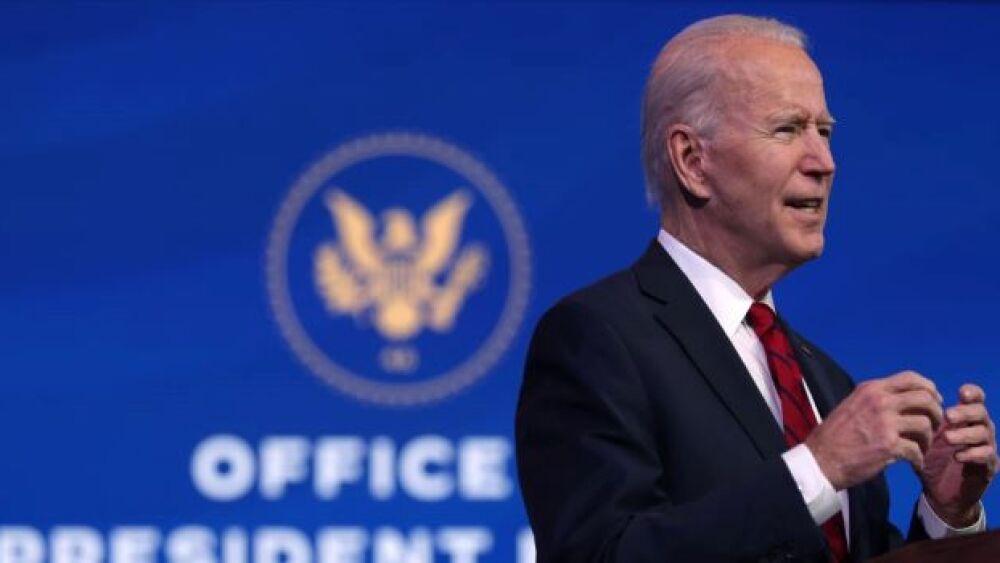President Joe Biden took an aggressive step that mandates vaccination for 100 million Americans who are eligible for preventative medication.
Alex Wong/Getty Images
In the latest move to curb the rapid spread of COVID-19 across the United States, President Joe Biden took an aggressive step that mandates vaccination for 100 million Americans eligible for preventative medication.
Biden struck a forceful tone on Thursday as he expressed his frustration with those who have been unwilling to receive one of the three authorized (and fully approved in the case of Pfizer and BioNTech) vaccines for COVID-19. The latest surge in COVID-19, driven by the highly infectious Delta variant, has largely been among the unvaccinated. The flood of new infections has placed an increased strain on hospitals across the United States.
“We’ve been patient. But our patience is wearing thin, and your refusal has cost all of us,” he said, according to the Associated Press. He added that the unvaccinated minority “can cause a lot of damage, and they are.”
Components of the new White House plan mandate vaccinations for all federal workers and contractors, with some limited exceptions. Health-care workers employed by facilities that accept payments from both Medicare and Medicaid will also be required to receive the vaccine. Additionally, the plan calls for private employers who have more than 100 employees to require vaccinations among employees or mandate weekly testing. The mandate for private employers will be enacted through a new rule through the Occupational Safety and Health Administration. Citing an administration official, the Associated Press said penalties for violating the vaccination or testing requirement would be $14,000 per violation.
Military medical teams are expected to be deployed to assist hospitals across the U.S. that have become overwhelmed with COVID-19 patients.
Biden’s plan also encourages the use of masks and social distancing to prevent the spread of viral infection. Fines will be increased for violators who are traveling on airplanes and trains.
During his address, Biden also said the government will increase the supply of COVID-19 tests, which will include at-home testing kits. The president said he is working with retailers like Walmart, Amazon and others to sell the at-home kits at cost.
Biden’s political opponents are already planning to sue the administration over the plan.
According to the U.S. Centers for Disease Control and Prevention (CDC), the seven-day average of daily new COVID-19 cases in the U.S. is 136,558. The agency noted in a tweet that those numbers decreased from the previous week by 12.7%, indicating a downward turn in infections. However, the infection rate is 1,076% higher than this time last year.
In addition to battling the coronavirus, Biden continues to seek reforms that will lower prescription drug prices. The president is pushing for Medicare to have the capability to negotiate prescription drug prices, which the plan is currently unable to do by legal mandate. As BioSpace previously reported, the call for Medicare to negotiate drug prices is part of Biden’s Build Back Better plan.
The White House also calls for a cap on out-of-pocket expenses Medicare beneficiaries pay for prescription drugs each year. Biden said this is essential for senior citizens, many of whom are on fixed incomes. The president said capping the costs will ensure that seniors can still make ends meet and won’t be forced to sacrifice essentials to pay for their medications. There are more than 61 million Americans who currently receive coverage through Medicare.
Along with giving Medicare the ability to negotiate drug prices, the Build Back Better plan also seeks penalties for companies that increase the price of approved medications faster than inflation.
Much like the vaccination mandate, the Medicare reform has opposition, particularly from the pharmaceutical industry. The opposition, which recently received some support from an analysis conducted by the nonpartisan Congressional Budget Office (CBO), is that a change in Medicare’s formulary will negatively affect new drug development. The CBO analysis showed the change would cause a 15% to 25% reduction in expected returns for drugs, which means a future decrease in the number of new drugs entering the market.





